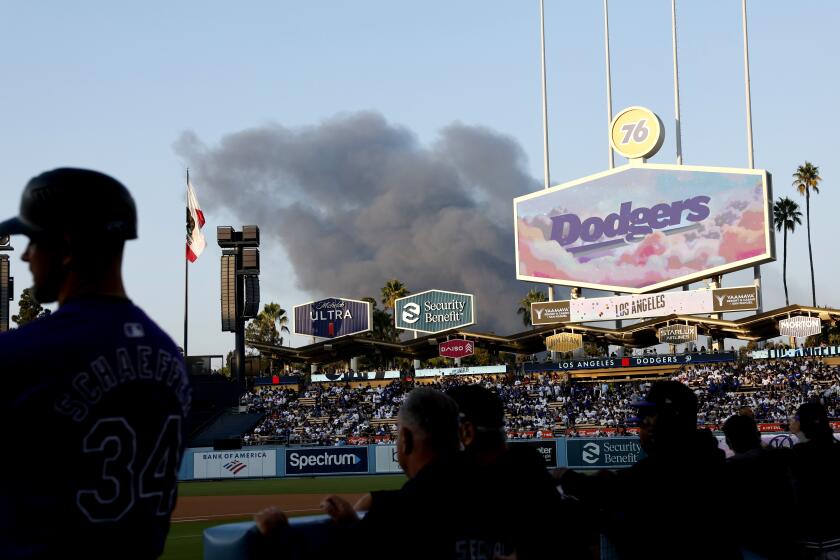A Forward Leap for the LAPD
The Los Angeles Police Commission’s approval Tuesday of new guidelines on discipline and punishments for LAPD officers finally addresses one of the Christopher Commission’s most important and long-awaited recommendations. A better department is the likely result.
The Christopher Commission was formed in April 1991 in the aftermath of the police beating of Rodney King. The panel investigated what was then a very insular LAPD and in July of that year released several important recommendations. But implementation has been slow, even though the panel’s goal was a better Police Department, not a dismembered one.
To be sure, several positive changes were inspired by the Christopher Commission. Among them: the shift to community-based policing; strict control over the police chief’s tenure; making the chief accountable to the Police Commission; a civilian inspector general to oversee the disciplinary process.
But most of the 44 “problem officers” referred to by the Christopher Commission as posing a “much higher risk of using excessive force than other officers” were still on the job a year later and some remain even today. A “culture of gender bias” persists, and last December the department’s inspector general demanded that mid-level commanders and managers be held accountable for that form of bias. But how could the commanders be measured, since the department’s lack of disciplinary standards allowed superiors to react mildly, too harshly or not at all?
That obstacle was removed by the Police Commission’s vote this week. Now, all officers who engage in objectionable actions ranging from insulting behavior to the use of excessive force will face clearly specified procedures and penalties, as the Christopher Commission called for. The guidelines are not binding--although they should be--but they are expected to become the standard for disciplinary procedures.
Interim Police Chief Bayan Lewis said that the change “gives our supervisors something to refer back to.” The Police Protective League says it will “prevent disparate treatment of our officers.” And Katherine Mader, the Police Commission’s inspector general, said that it provides credibility for the public and the department. Makes you wonder why it took nearly seven years to get there.
More to Read
Sign up for Essential California
The most important California stories and recommendations in your inbox every morning.
You may occasionally receive promotional content from the Los Angeles Times.










